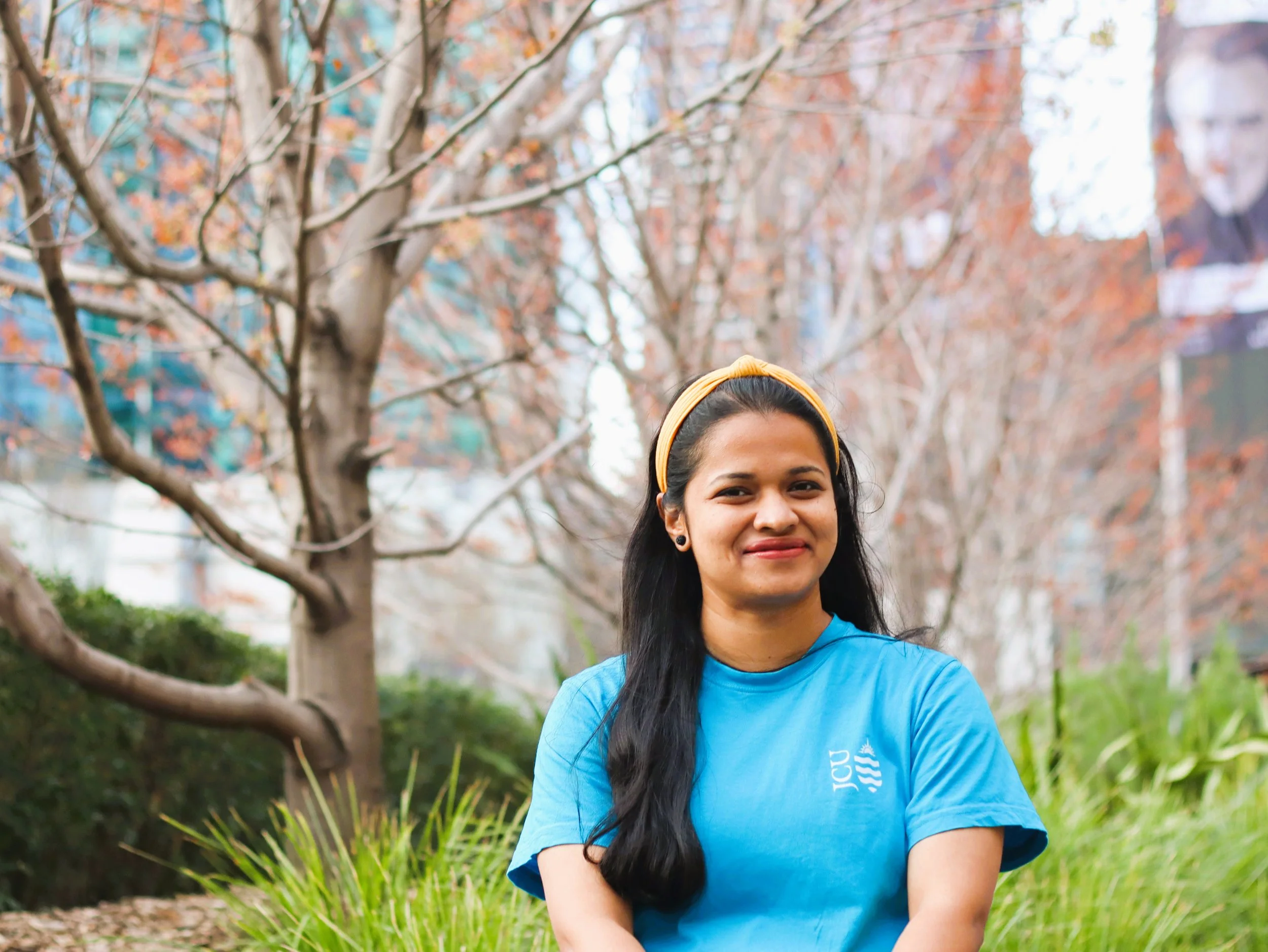NEETHU MADHUKUMAR
PhD candidate at James Cook University in the Internet of Things research group
What is your current role?
I am currently pursuing a Ph.D. degree from James Cook University (JCU), Cairns, Australia. I am part of the Internet of Things research group at JCU. I develop artificial neural network models to provide decision support for precision irrigation. My neural networks analyse geoscience and remote sensing data for developing 'climate and environmental'-smart irrigation strategies. As part of this research, I also investigate the possibilities of improving weather forecast and surface/root-zone soil moisture estimation. With about seventy percent of global freshwater used for irrigation, I endeavour to find solutions to reduce freshwater wastage using Artificial Intelligence (AI).
How did you get to your current position?
During my final year of bachelor's study, I figured out that I am interested in academia and planned for a Ph.D. After completing my masters, I looked for Ph.D. opportunities related to my master's research. I found the research works done by the Internet of Things (IoT) research group at JCU aligned with my research interests and applied for a Ph.D. position. I received a scholarship from JCU and was able to join the IoT research group at JCU.
What’s the best advice anyone has ever given you?
Be patient and persistent. Appreciate what you have achieved so far and be kind to yourself.
What made you choose this field?
I believe small steps can lead to big changes. I chose this field of research as I want to make a small but significant positive impact on the environment through better irrigation practices through deep learning technology.
What do you enjoy most about your research?
I find it quite fascinating to see how the artificial neural network works and its potential to bring positive changes to the agriculture sector with reduced environmental impact. Also, I feel very excited to work on emerging technologies like Artificial Intelligence, Deep Learning, and IoT.
What does a typical day in your PhD involve?
A typical day of my work involves research, coding, academic writing, research meetings, and teaching undergraduate students at JCU. I also try to find time to take my research to the public domain through conferences/symposiums, JCU, online, and media platforms. I want my research to reach a wider audience and create an impact in the real world. Some news articles about my research were featured on: JCU news, ABC Radio, 7News, many international/Australian IT magazines, and SBS.
What advice would you give someone starting a degree/qualification/experience in the same field?
Your Ph.D. journey will not be easy. There will be a lot of ups and downs. However, working on a project of your interest and having the right supervisory team will make this journey a little bit easier. So, take time and figure out your research area of interest. Next, identify research groups/supervisory teams working on your selected research area and approach for Ph.D. opportunities.
Is there anything you find difficult/challenging? Is there any advice you have for someone in a similar position?
I found working on my research during the COVID-19 pandemic quite challenging. Part of the initial research plan had to be modified due to work from home and limited access to the farm fields. I was able to overcome this problem by raising the possible challenges and roadblocks with my supervisors early on. I also feel the regular online team meetings I organized helped to find solutions faster.
Where are you hoping to end up in your career?
I want to be an academic in the future. I want to continue my research and teach at a university. I feel the happiest when I teach and have always taken up any opportunities that offer teaching-related activities. The teaching opportunities I received in JCU's Indigenous Education and Research Centre and overseas have often been a great source of happiness during the ups and downs of my Ph.D. and master's research. Currently, I am in the final few months of my Ph.D. and am focused on finishing my thesis.
What do you see as the next steps forward in your field?
I believe the Internet of Things (IoT) will revolutionize the agricultural sector. I feel in the future, IoT will drive Australia towards novel technologies for precision agriculture, reducing agriculture pollution and enhancing the quality and quantity of crop yield.
If you would like to find out more about Neethu’s research then you can find her on Linkedin.



